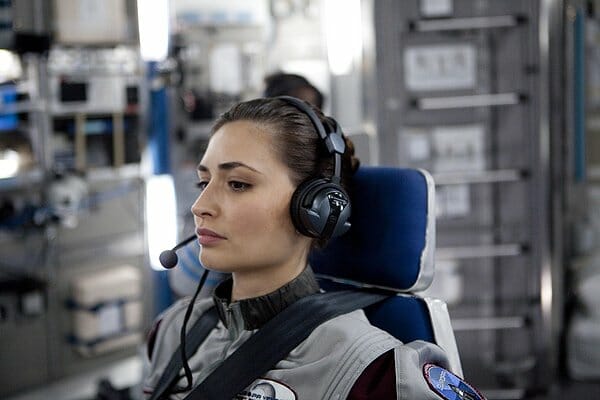Europa Report

With echoes of 2001, Stanley Kubrick’s masterpiece, Europa Report is riveting low-budget hard science fiction—i.e., emphasizing the science rather than the speculative. Director Sebastian Cordero’s innovatively structured thriller enthralls with not only its apparent accuracy but the passion it portrays among a class of people historically characterized by pocket protectors, taped eyewear and social awkwardness. (See Burn Gorman’s turn in Pacific Rim.) Aboard the Europa One (Kubrick’s vessel was called the Discovery One), the six scientists bound for one of Jupiter’s moons (HAL and his crew were headed for the gas giant itself) are living, breathing human beings, with families and fears, ambition and emotions. They’re also just smarter than most of us and on a mission more significant than any of us will experience ever in our lives.
The stakes are high in this mock doc/faux found-footage mystery, in which the privately funded space exploration company Europa Ventures issues a documentary on the fate of its first manned mission to investigate the possibility of alien life within our solar system. This actually isn’t the stuff of science fiction: On Nov. 16, 2011—the first day of principal photography on the film, coincidentally—scientists revealed they had discovered new evidence of liquid water lakes encased in the moon’s icy surface, in addition to a vast subsurface ocean under the ice crust. Where there’s water and heat—caused by tidal flexing on Europa—there could be life.
Europa One is wired like the Big Brother house, with cameras positioned throughout the ship, outside of it and even inside the crew’s spacesuits. Pre-mission interviews, news footage of the launch, executive talking heads and an onboard confessional offer context for the dangerous journey. For six months, the world watched the team of scientists go about their work. Then the feed goes dark, and in a bid to fix the issue, the crew loses one of its own.
-

-

-

-

-

-

-

-

-

-

-

-

-

-

-

-

-

-

-

-

-

-

-

-

-

-

-

-

-

-

-

-

-

-

-

-

-

-

-

-








































